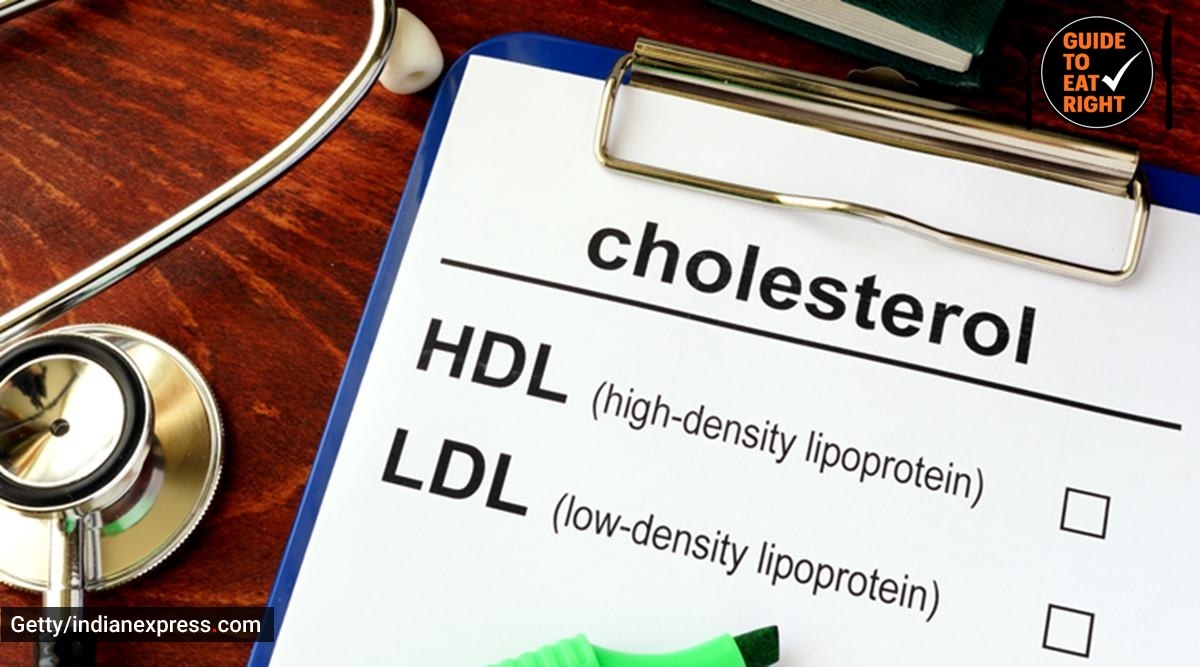
[ad_1]
High blood cholesterol is a known risk factor for heart disease. Ten-year-old nutritional guidelines suggest that dietary cholesterol is one of the main contributors to the elevation of blood cholesterol levels. However, these guidelines are now called into question by recent scientific revelations and negate dietary cholesterol as a significant contributor to cardiovascular disease for most people.
Here, we discuss the current scientific evidence to understand the role of dietary cholesterol in elevating blood lipid levels and the risk of heart disease.
Blood cholesterol and dietary cholesterol are different
According to the National Heart, Lung and Blood Institute (NHLBI), National Institute of Health, United States, the cholesterol circulating in the blood is a waxy, fat-like substance produced by the liver when needed. Dietary cholesterol is found in foods of animal origin, such as meats, liver and other organ meats, whole dairy products, egg yolks and shellfish, and is absorbed in relatively small amounts. Cholesterol is vital for fulfilling multiple physiological functions, synthesizing hormones and vitamin D.
What the research says
A systematic review of 40 studies by Samantha Berger and colleagues found that consumption of foods containing cholesterol was not associated with any coronary heart disease, ischemic stroke, or hemorrhagic stroke.
In a review article titled “Rethinking Dietary Cholesterol,” Maria L Fernandez suggested reconsidering the common notion of limiting dietary cholesterol in blood cholesterol control. On the contrary, in the case of some people, foods high in cholesterol have been found to raise blood cholesterol levels. A randomized controlled trial included 40 men aged 18 to 57 and put them on an egg diet. The study reported that one section of men with a specific genetic makeup had higher cholesterol levels than others. The authors classified the first category of men as “hyper-responders” and concluded that supplementing dietary cholesterol was not linked to an increased risk of developing atherosclerosis in healthy men.
 There is a lack of scientific evidence that could link eggs to high cholesterol levels or an increased risk of heart disease. (Source: pixabay)
There is a lack of scientific evidence that could link eggs to high cholesterol levels or an increased risk of heart disease. (Source: pixabay)
Dietary cholesterol and heart disease
Strong scientific evidence shows no association between dietary cholesterol and the development of heart disease. In fact, the popular notion of consuming dietary cholesterol and having a high risk of heart disease seems exaggerated in light of such evidence such as a full review of the Harvard Egg Study and other similar data.
Eggs are the engine of nutrition with the presence of all essential amino acids, vitamins and minerals. A large egg contains around 186 milligrams of cholesterol, but only 1.56 grams of saturated fat. For decades, eggs have been excluded from high cholesterol diets because of their cholesterol content.
However, there is a lack of scientific evidence that could link eggs to high cholesterol levels or an increased risk of heart disease. A prospective population-based study included 1,032 men aged 42 to 60 and assessed their food intake from a 4-day food record. The result revealed that egg consumption was not associated with an increased risk of coronary heart disease, even in 32.5% of ApoE4 carriers who were very susceptible individuals.
A very large data published by JAMA involved 37,851 men aged 40 to 75 and 80,082 women aged 34 to 59, and assessed the association between the incidence of heart disease and egg consumption by a food frequency questionnaire. These data concluded that consuming up to 1 egg per day is not associated with a risk of coronary heart disease or stroke in healthy men and women.
On the contrary, several researchers have found that eggs reduce the risk of heart disease. A study from the British Medical Journal analyzed eight articles and found that eating an egg a day was not associated with an increased risk of coronary heart disease or stroke. In fact, people who ate an egg a day had a 25% lower risk of developing a hemorrhagic stroke.
However, eating eggs may increase the risk of cardiovascular disease in people who are already living with type 2 diabetes.
Now that we know that dietary cholesterol is not the culprit as we were told earlier, it is important to understand the risk factors for high cholesterol and how to lower cholesterol naturally.
Risk factors for cholesterol include lack of physical activity, being overweight or obese, smoking, consuming processed foods and junk food, having type 2 diabetes, kidney disease, or hypothyroidism.
How to lower cholesterol
Lifestyle modification is proven to be the easiest way to lower cholesterol:
Losing extra weight is the first step to take. Research has found that losing just 5 to 10 percent of existing body weight is linked to lower cholesterol levels and lower risk of cardiovascular disease in obese people.
A nutritious, whole-food diet is crucial for optimal health. Adding nuts, seeds, legumes, green leafy vegetables, beans and fruits to the daily diet helps control blood cholesterol levels. Foods high in cholesterol like eggs, liver, and shellfish are packed with important nutrients and should be included in the daily diet with caution to avoid these for people with diabetes. A personalized consultation with a certified dietitian is the best course of action to decide on the frequency of meals, the amount of each food and the composition of the diet.
Watch out for trans fatty acids. Almost all processed and ultra-processed foods like pizza, cookies, cookies, instant noodles, fries, and fried chicken are high in trans fatty acids and increase the risk of heart disease, a leading cause of deaths around the world.
?? For more lifestyle news, follow us on Instagram | Twitter | Facebook and don’t miss the latest updates!
[ad_2]
Source link